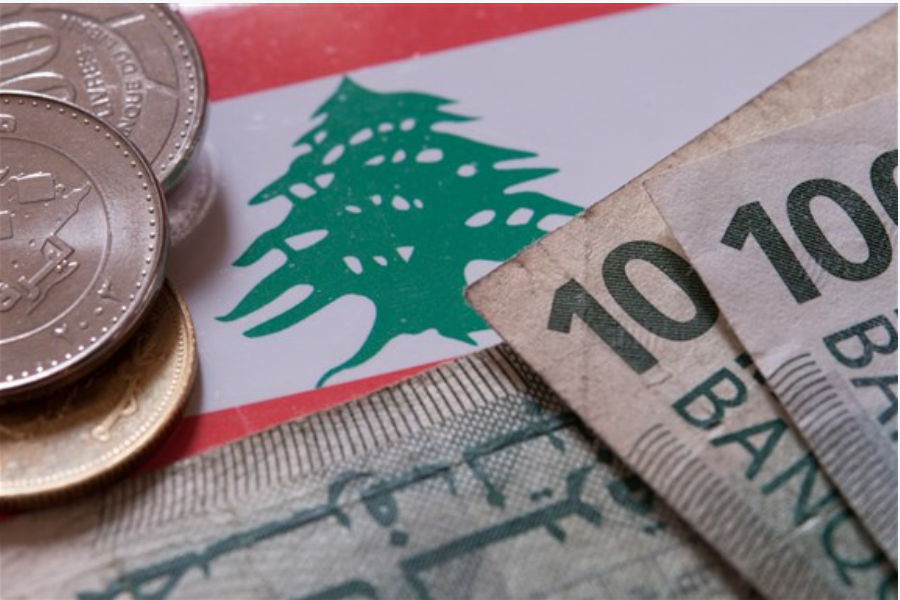
by zmn09 | Nov 22, 2022 | Uncategorized
Lebanon has been historically exporting skilled workers to many regions in the world including Gulf, Africa, Europe, and North America. For more than 10 years, the Unemployment rate in Lebanon has been increasing to reach 11.35% in 2019 (from 6.35% in 2009). Since the Economic crisis in 2019, the rate has dramatically increased to reach 14.5% in 2021.
To dig deeper into unemployment in Lebanon we can see that the citizens with advanced education (holders of a university degree or above) are prone more to unemployment, in comparison to intermediate (secondary schooling) and basic education (primary schooling or below).
So what can we do to solve this?
It is worth mentioning that since the economic crisis in Lebanon in 2019 followed by the COVID-19 pandemic, the Lebanese economy deteriorated severely leading to the closure of many companies and establishments or downsizing in the terms of employees and costs.
Note that among the 3 sectors (services, industry, and agriculture), the services sector was the most to hold the burden of this economical crisis, especially for the restaurants, hotels, banks, and retail traders,…
The employment breakdown as per sector shows that the service sector retained the most employment over years, in contrast to agriculture which only received 11.32% of total employment in 2019.
Therefore, we should try to shift the load of the employment to the other sectors in Lebanon (industry and agriculture) by encouraging the highly educated persons to start their own businesses in this area, which will then lead to more employment from the less educated in these 2 fields.
This will not be attainable unless the government and international entities start incentivizing the youth by providing the below:
- Access to finance (through long-term small loans at a minimized rate of interest)
- Access to knowledge (by providing proper training to the youth in management and technical expertise)
- Access to market (by providing the connections to the youth to sell their products through)
To note that some initiatives from the public have been launched to provide one or more of the above-mentioned, however, the government hasn’t yet started any steps to help.

by Mahmoud Yaghmour | Apr 15, 2022 | Uncategorized
In this article, I’ll be discussing the Lebanese economic crisis, it’s challenges and solutions. – Fun fact: the 0’s and 1’s (above) are, ‘Lebanon’ in binary.
Most news today about Lebanon, is unfortunately, bad news.
There’s an electric and currency crisis, a brain drain and so much more.
And in these dark times, Lebanon is losing its lights, its educated people, to the other place.
But outside sensational news, and using data, can we verify these challenges and offer a solution?
Well, after Investigating Lebanon’s inflation and GDP, we clearly see sky-rocketing inflation and a tumbling GDP.
But what is the solution?
Now, for a country to trade, it needs to find a niche – that is that one or two things it can do better than it’s competition and trade with those things.
The bottom chart (in the above visualization) represents the population and export sizes of Lebanon, Saudi Arabia and UAE – Lebanon, the one in red, is greatly surpassed in both metrics.
However, if we look on the chart on-top, in 2017, we see a golden opportunity, in the form of a golden bar: This is Lebanon’s Human Capital Index; which at a fraction of the budget, performs relatively close to the two economic powerhouses of the region.
This is where Lebanon can do trade! This is Lebanon’s niche!
You are Lebanon’s niche!
And here are the solution details summarized:
‘While in Lebanon, the Lebanese youth should work to obtain then commercialize patents in the digital service space.’- This is the Solution!
This will diminish inflation, brain drain, unemployment, and offset copycat strategies!
For the detailed version of the solution, please examine the visual above.
And, to validate that Lebanese ideas are commercially lucrative:
According to the IMF, Lebanon ranks second in terms of Venture capital investment as a % to GDP. The United States ranks 1st with 2.84%, Lebanon comes in a close-second with 2.8%
– so experienced investors see great potential in Lebanese talent!
And in being part of the solution, I’m in the process of launching MSBA.io! – a site dedicated to the MSBA Alumni, where they can tell their stories, share their portfolios and get discovered; there will even be a collaboration section where they can work on projects to help build up the Lebanese tech scene!
So, this story has not ended; it is only just beginning!
Thank you! 😊
—————-
References:

by Lea El Halabi | Apr 15, 2022 | Generic, Visualization
Does a Country’s Borrowing Policy Affect its Population’s Income level?
The Case of Lebanon

DOLLAR? LBP?
WHAT’S THE EXCHANGE RATE TODAY?
DISCOUNTING CHECKS? AT WHAT RATE?
WHAT???? 20%????
THIS MEANS I’M LOSING 80% OF MY MONEY!!!
I WAS DOING OK BUT NOW I CAN BARELY MAKE ENDS MEET…
This has unfortunately been the sad reality that
theLebanese people have been living for since
October of 2019.
WHY?
Because a Banking | Financial | Currency | Crisis
Made a Huge Bubble Burst!

BUT HOW DID WE GET HERE?

Lebanon has had a budget deficit for over 20 years
and has been borrowing from external parties
for as long as we can remember.
So, as Lebanese citizens, we are born indebted.
A country’s national debt affects its population’s income level:
-
Growing debt has a direct effect on economic opportunities
-
If high levels of debt crowd out private investments, workers would have less to jobs do and therefore earn lower wages

Countries with LOWER DEBT exhibit HIGHER INCOME levels per capita.
SO HOW HAS LEBANON’S DEBT BEEN CHANGING OVER TIME?

WHAT CAN WE DO TO MAKE THINGS BETTER?

Potential Solutions include but are not limited to:
-
Supporting Production and Services Sectors leading to more Job Creation and eventually More Wages
-
Improving Trade Agreements leads to more exports which would Reduce Budget Deficits and make the country economically healthier
-
Attracting Foreign Direct Investments by providing a healthy capital market (ex: improving Reporting Practices) which leads to More Investments & More economic opportunities, More Jobs and eventually More wages
IS THERE PROOF?
Countries with Open Trade Policies seem to have higher income levels

Countries with Updated Reporting Practices also have higher income levels

SO, WHAT ARE THE RECOMMENDATIONS?
STOP borrowing from international Agencies
CONTROL High National Debt Levels
Implement Policies to boost the economy













